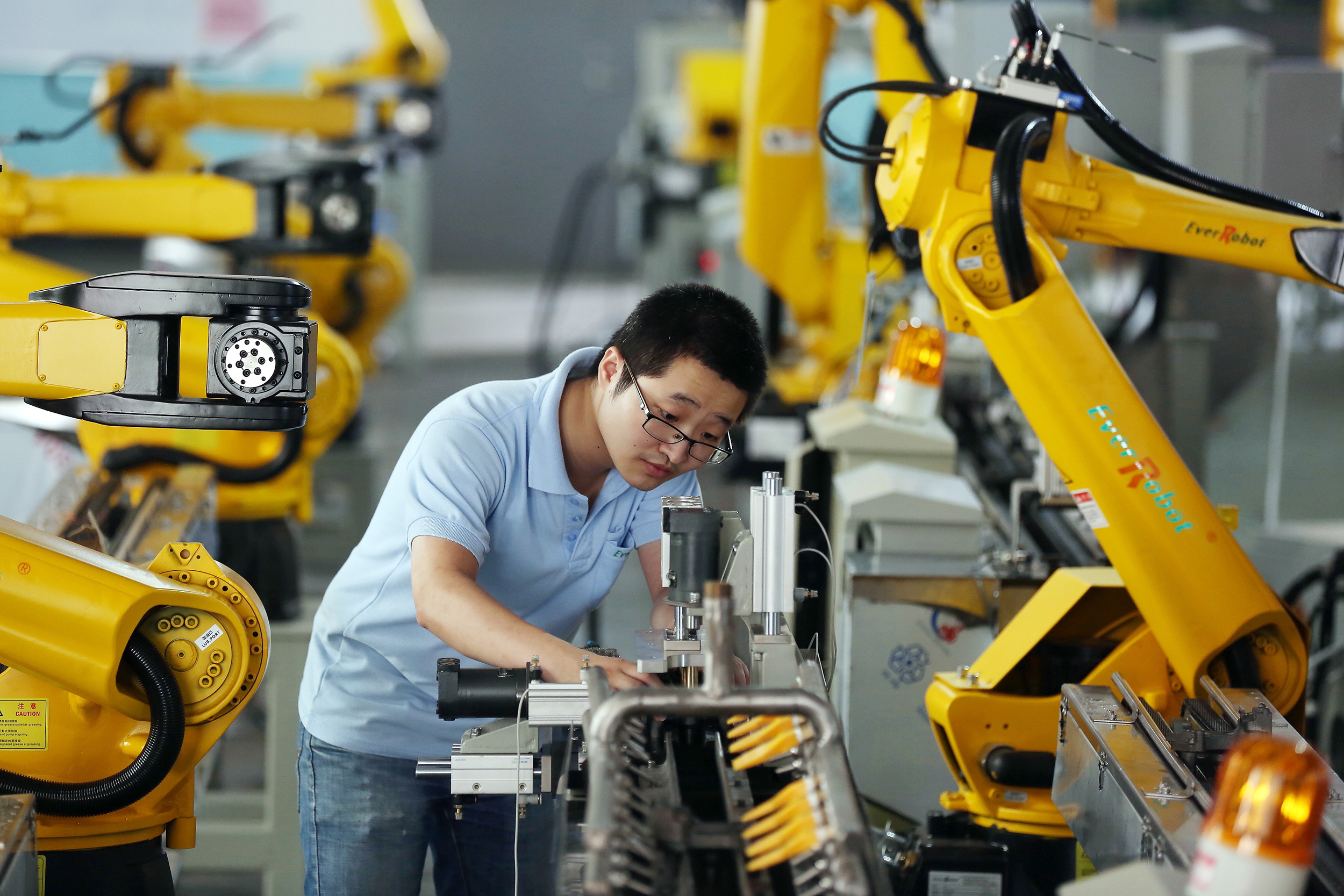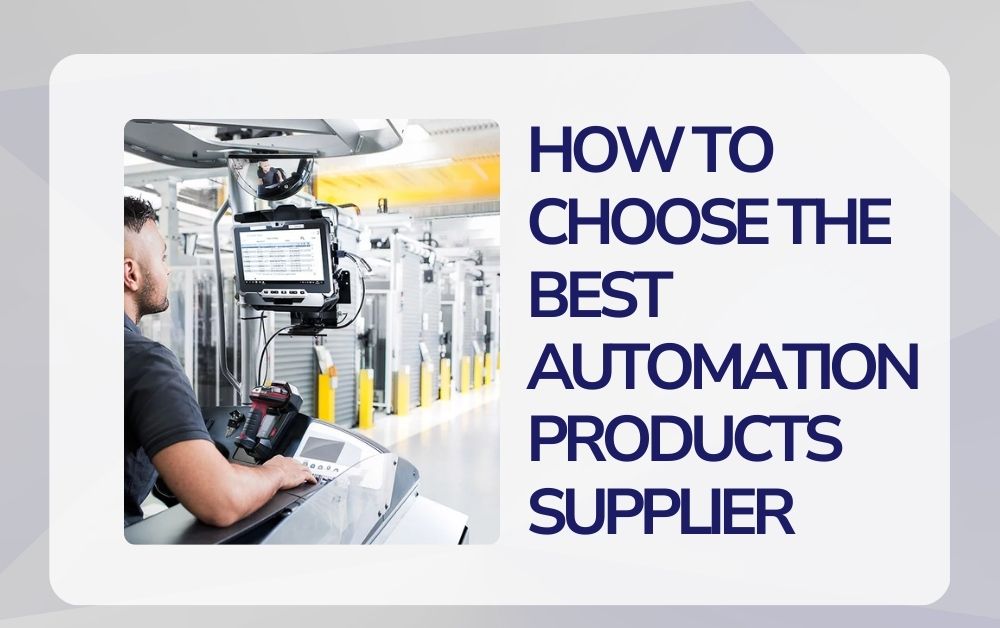Selecting the right automation products supplier is crucial for any business looking to enhance its operational efficiency and stay competitive. Automation products, which include machinery, control systems, and software designed to streamline processes, play a pivotal role in modern industries. But with so many suppliers available, how do you choose the best one? This guide will walk you through the essential factors to consider, helping you make an informed decision.
Understand Your Specific Needs
Assess Your Business Requirements
Before you start searching for an automation products supplier, it’s vital to understand your specific needs. Every business has unique processes and challenges, so what works for one company might not work for another. Take time to evaluate your current systems and identify areas where automation could make the most significant impact. Are you looking to improve efficiency, reduce costs, or increase production capacity? Understanding your goals will help you find a supplier that offers products and services aligned with your objectives.
Note – Ready to enhance your operations with top-notch automation solutions? Partner with the leading Automation Products Supplier in Qatar—Apex Global Solutions. The team is dedicated to providing high-quality products and exceptional support tailored to your specific needs. Contact Apex Global Solutions today to discover how our innovative automation solutions can drive your business forward. Visit the website or call us now to get started with Apex Global Solutions!
Determine the Type of Automation Products You Need
Automation covers a broad range of products, including sensors, controllers, actuators, and software solutions. Determine which type of automation products your business requires. For instance, if you need to streamline production processes, you might focus on automation solutions for manufacturing. If your goal is to enhance data collection and analysis, you might look for advanced sensors and software. By narrowing down the type of products you need, you can more easily find suppliers that specialize in those areas.
Research Potential Suppliers

Check Supplier Reputation and Experience
Once you know what you need, start researching potential suppliers. Look for companies with a strong reputation in the industry. A supplier’s reputation often reflects their reliability and the quality of their products. Check for customer reviews, testimonials, and case studies that showcase their previous work. Additionally, consider how long the supplier has been in business. Experienced suppliers are more likely to have a deep understanding of the industry and offer high-quality products and services.
Evaluate Product Quality and Range
The quality of automation products is crucial for ensuring the success of your automation efforts. Look for suppliers who offer products that meet industry standards and have a track record of reliability. It’s also important to consider the range of products available. A supplier with a broad range of products can provide you with various options and help you find solutions that best fit your needs. Make sure to ask for product specifications, certifications, and any available warranty information to assess the quality and reliability of their offerings.
Consider Technical Support and Services
Assess the Level of Technical Support Provided
Technical support is an essential aspect of choosing an automation products supplier. Automation systems can be complex, and you may need assistance during installation, troubleshooting, and maintenance. Evaluate the level of technical support provided by the supplier. Do they offer on-site support, remote assistance, or both? Check their response times and the availability of their support team. Good technical support can save you time and prevent potential disruptions in your operations.
Look for Additional Services
In addition to technical support, consider what other services the supplier offers. Some suppliers provide training for your staff to ensure they can effectively operate and maintain the automation systems. Others may offer consulting services to help you design and implement the best automation solutions for your business. These additional services can be valuable in maximizing the benefits of your automation investments and ensuring a smooth transition to new systems.
Compare Pricing and Value
Get Quotes from Multiple Suppliers
Pricing is a critical factor when choosing an automation products supplier, but it should not be the only consideration. Obtain quotes from multiple suppliers to compare costs. Be sure to request detailed quotes that include all potential expenses, such as installation, training, and ongoing support. Comparing quotes will give you a better understanding of the market rates and help you make a more informed decision.
Consider the Overall Value
While pricing is important, consider the overall value offered by each supplier. A lower price might be tempting, but it could come with trade-offs in terms of product quality or support. On the other hand, a higher-priced option might offer superior products and services that could save you money in the long run. Evaluate the total value of what each supplier provides, including the quality of products, level of support, and any additional services. This approach will help you make a choice that offers the best balance between cost and benefits.
Review Contract Terms and Conditions
Understand the Contract Details
Before finalizing your choice of supplier, thoroughly review the contract terms and conditions. Pay attention to key aspects such as payment terms, delivery schedules, and any penalties for delays or non-compliance. Ensure that the contract clearly outlines the responsibilities of both parties and any warranties or guarantees provided. A well-defined contract will help prevent misunderstandings and protect your interests throughout the duration of your partnership with the supplier.
Check for Flexibility and Scalability
As your business grows, your automation needs might change. Look for suppliers who offer flexible and scalable solutions that can adapt to your evolving requirements. Some suppliers might provide options for upgrading or expanding your automation systems as needed. This flexibility can be valuable in ensuring that your investment continues to meet your needs over time. Make sure the contract allows for adjustments and includes provisions for future upgrades or changes.
Make an Informed Decision
Weigh All Factors and Make Your Choice
After considering all the factors mentioned above—your specific needs, supplier reputation, product quality, technical support, pricing, and contract terms—take time to weigh your options. Make a decision based on a comprehensive evaluation of each supplier’s strengths and how well they align with your business needs. Choosing the right automation products supplier is a significant decision that can impact your operational efficiency and overall success. Take the time to make an informed choice that will benefit your business in the long run.
Build a Strong Relationship with Your Supplier
Once you have selected the best automation products supplier, focus on building a strong working relationship. Effective communication and collaboration with your supplier can lead to better support and more successful outcomes. Maintain open lines of communication and provide feedback on the products and services received. A positive relationship with your supplier can enhance the overall success of your automation initiatives and contribute to your business’s growth and efficiency.
Conclusion
Choosing the best automation products supplier involves careful consideration of your business needs, supplier reputation, product quality, technical support, pricing, and contract terms. By following these guidelines, you can make an informed decision and select a supplier that will help you achieve your automation goals. Remember to build a strong relationship with your chosen supplier to ensure ongoing support and success. With the right partner, you can leverage automation to enhance your business operations and stay competitive in today’s dynamic market.
For more insightful articles related to this topic, feel free to visit blogmates.com.au

